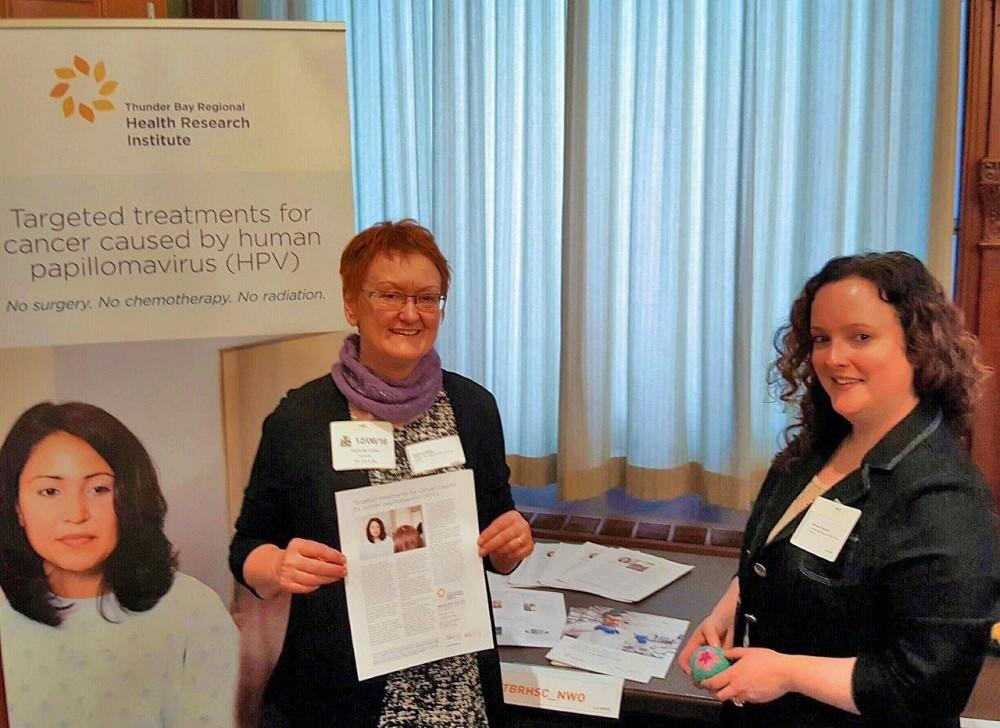Targeted treatments for cancer caused by human papillomavirus (HPV)
by Dr. Ingeborg Zehbe & Melissa Togtema
 Thunder Bay Regional Health Research Institute – Lakehead University Research Chair Dr. Ingeborg Zehbe (left) and members of her team including PhD candidate Melissa Togtema (right) are making less-invasive treatment options possible for patients who develop cancer due to a chronic HPV infection. Their research focuses on the development of drugs that specifically target the virus to stop it from causing cancerous changes in infected cells.
Thunder Bay Regional Health Research Institute – Lakehead University Research Chair Dr. Ingeborg Zehbe (left) and members of her team including PhD candidate Melissa Togtema (right) are making less-invasive treatment options possible for patients who develop cancer due to a chronic HPV infection. Their research focuses on the development of drugs that specifically target the virus to stop it from causing cancerous changes in infected cells.Human papillomaviruses (HPVs) are some of the most common sexually transmitted viruses in the world. Chronic infections with certain types of HPV are responsible for causing almost all cases of cervical cancer as well as a growing number of head and neck cancers, which can affect both women and men.
Currently, abnormal changes in cervical cells, which indicate an HPV infection is present, are detected through routine Pap testing. Patients are then monitored to determine whether their immune system can eliminate the virus or cancer will fully develop. If cancer does develop, available treatment options include surgery, chemotherapy, and radiation – all of which are invasive and cause many unwanted side effects.
Scientists at the Thunder Bay Regional Health Research Institute are developing new, less invasive treatment options for patients with HPV-related cancer. Dr. Ingeborg Zehbe and her team are researching drugs which specifically target the virus to stop cancerous changes in the infected cells.
What makes this research especially exciting is the way the treatment is given – and it’s an excellent example of the collaborative nature of our Health Research Institute.
The Health Research Institute is a close working environment where scientists talk with each other, often leading to new innovations. In this case, Dr. Zehbe, a cancer biologist, has teamed up with scientists Dr. Laura Curiel and Dr. Samuel Pichardo, both of whom are engineers and experts in high-intensity focused ultrasound (HIFU). Together, they have created a unique way delivering the HPV-targeted drugs into cancer cells using a new HIFU technique. Unlike traditional chemotherapy and radiation treatments, this treatment will have minimal side affects on surrounding healthy tissues, greatly improving patient experience.
Dr. Zehbe and her team are working to perfect the therapy thanks to funding from a Collaborative Health Research Projects grant, a joint initiative between the Canadian Institutes of Health Research (CIHR) and the Natural Sciences and Engineering Research Council of Canada (NSERC). The goal is to make therapies such as this a part of everyday health care, improving patient experience and outcomes while also reducing health care costs. It’s another way we are Bringing Discovery to Life.